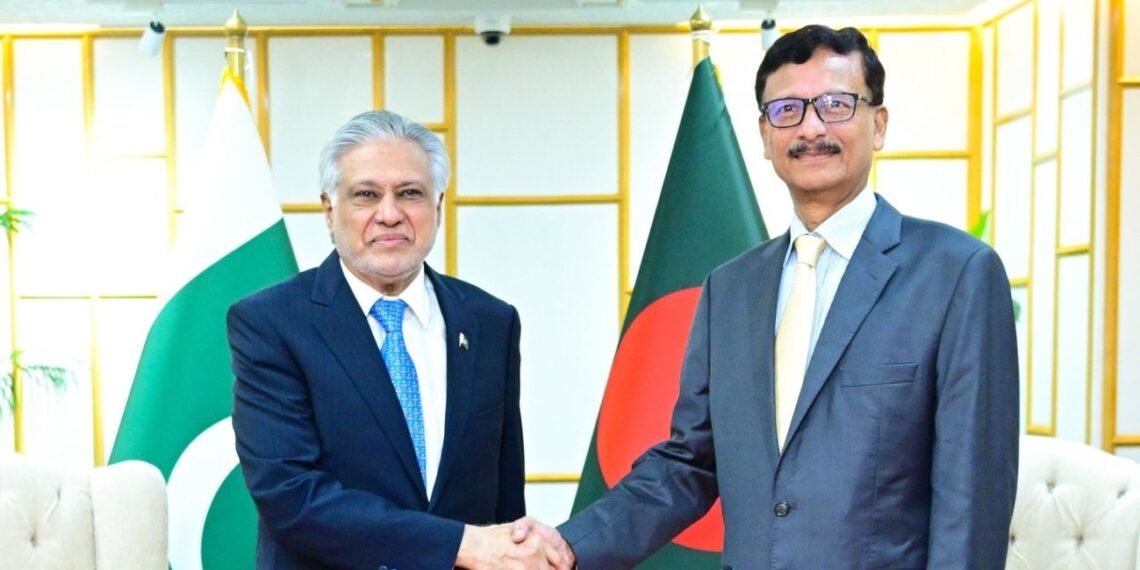Dhaka: Pakistan’s Deputy Prime Minister and Foreign Minister Ishaq Dar has claimed that all major unresolved issues between Islamabad and Dhaka — including the decades-old demand for an apology over the 1971 genocide — were “settled long ago,” during two separate phases of bilateral engagement.
Dar, currently on a two-day official trip to Dhaka — the first state-level visit by a Pakistani leader in 13 years — made the remarks after meeting Foreign Affairs Adviser Towhid Hossain at Hotel Sonargaon on Sunday, Bangladeshi daily Prothom Alo reported.
Responding to questions about the 1971 issue during a joint briefing, Dar said, “The matter was first resolved in 1974. That historic document speaks for both countries. Later, General Pervez Musharraf came here and openly addressed the matter. So, in effect, the issue was resolved twice — once in 1974 and again in the early 2000s.”
Dar’s comments come at a sensitive time, with analysts viewing his visit as a strategic move by the Muhammad Yunus-led interim government to bolster ties with Pakistan amid ongoing political flux in Dhaka.
Critics argue that the outreach ignores the lingering wounds of Pakistan’s military atrocities during the 1971 Liberation War under ‘Operation Searchlight,’ which left millions dead and hundreds of thousands of women subjected to sexual violence.
Despite ongoing diplomatic engagement, Islamabad has never issued an official apology for the genocide, a demand that remains deeply rooted among Bangladeshis.
Experts point out that Pakistan-based media has recently carried provocative pieces calling for “reclaiming Bangladesh” as retribution for the 1971 defeat to India.
According to historical accounts, the 1971 conflict claimed over three million lives and saw the mass rape of more than 300,000 women by Pakistani forces.
The atrocities remain a cornerstone of Bangladesh’s national memory, and successive governments have pressed Islamabad for an unequivocal acknowledgment of the genocide.
Upon arrival on Saturday, Dar engaged in a flurry of political meetings.
He met a six-member delegation of the Bangladesh Nationalist Party (BNP) and later held discussions with leaders from Bangladesh Jamaat-e-Islami (JeI) and the National Citizen Party (NCP).
After meeting Dar, NCP Member Secretary Akhtar Hossain told reporters, “We presented the concerns and expectations of the Bangladeshi people. There is room for improving relations that were previously hostile.”
ALSO READ: 8-year-old student dies, three injured in fire at Arunachal residential school
BNP officials confirmed that Dar is also scheduled to meet party chief Begum Khaleda Zia at her Gulshan residence on Sunday evening.
Dar’s visit has drawn sharp criticism from the Awami League, which accused the interim government of compromising historical justice for political expediency.
“Without recognition of the genocide, normalization is betrayal,” the party said in a statement, adding: “History cannot be rewritten. Justice cannot be bargained away.”
Bilateral ties between Dhaka and Islamabad had plunged during Sheikh Hasina’s tenure, particularly after her government initiated the war crimes trials of 1971 collaborators in 2010 — a move that further strained relations with Pakistan.















